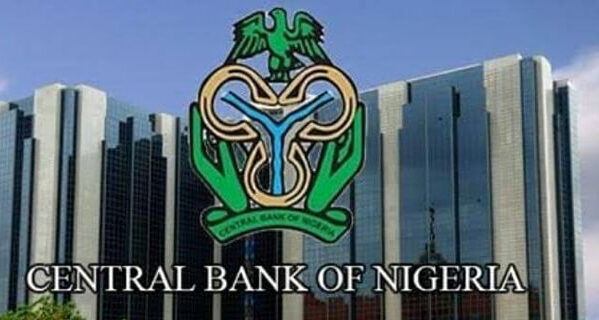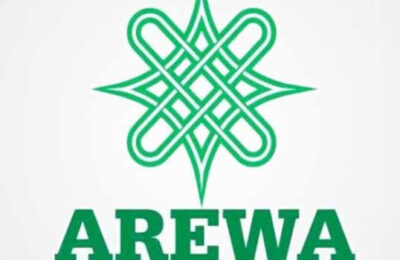Following directive from the Central Bank of Nigeria (CBN) to Deposit Money Banks (DMB) to raise their capital base significantly within 24 months beginning from April 2024, six lenders are already racing to raise a total of N1.047 trillion to meet the new rule.
Although, they have options like public offering, increasing debt and mergers and acquisitions, most of them are opting for public offer and rights issue.

Fidelity Bank
Specifically, Fidelity Bank Plc, Nigeria’s 6th largest bank, is set to launch a recapitalization drive on Thursday, June 20, 2024, with a public offer and rights issue aimed at raising up to N127.100 billion. As part of this capital-raising effort, the bank will hold a “Facts Behind the Offer” presentation at the NGX on the same day.
The rights issue will involve the offering of 3.2 billion ordinary shares of 50 kobo each at N9.25 per share, with a ratio of 1 new ordinary share for every 10 ordinary shares held as of January 5, 2024.
The public offer will make 10 billion ordinary shares of 50 kobo each available to the general investing public at N9.75 per share.

In an email message sent to it’s customers, the Bank read in part, “As you may be aware, in August 2023 and ahead of recent regulatory directives, we secured our shareholders’ approval to increase our capital base as part of our growth strategy.
“Following all regulatory approvals, I am pleased to announce the impending launch of our public offer and rights issue exercise (which we term the “Combined Offers”). At Fidelity Bank, we consider you, our esteemed customer, a vital stakeholder in our ecosystem, and therefore, invite you to take advantage of this opportunity.
“Through the Combined Offers, we are offering everyone an opportunity to invest in our future growth and share in our success through the Public Offer – for new shareholders; or to increase their stake in Fidelity Bank Pic through the Rights Issue – for existing shareholders.
“While our Return on Equity increased from 16 percent in 2022 to 27 percent in the 2023 financial year, our Total Dividend per Share increased by 70percent in 2023 compared to 2022. This demonstrates our commitment to strong value creation and increased returns to our shareholders.”
Fidelity Bank has consistently been on a growth trajectory, increasing Profit Before Tax by a compound annual growth rate (CAGR) of 64 percent, Deposits by 33 percent, and Risk Assets by 32 percent.
GTCO
Similarly, Guaranty Trust Holding Company (GTCO) will raise N500 billion through a public offer of its shares as early as July, the financial services group said.
The corporation has submitted a preliminary prospectus to the Securities and Exchange Commission (SEC), which regulates the capital market, according to a regulatory filing at the Nigerian Exchange Limited (NGX).
Both the number of shares to be offered and the price range for the public offer are yet to be decided, GTCO said
“The net proceeds of the Proposed Offering will be used for the growth and expansion of the GTCO PLC Group’s businesses,” Nigeria’s biggest lender by market value stated.
“Such planned growth and expansion will be effected through investments in technology infrastructure to fortify existing operations, the establishment of new subsidiaries and selective acquisitions of non-banking businesses,” it added.
GTCO is also considering committing some of the proceeds to recapitalise its commercial banking subsidiary, Guaranty Trust Bank Limited.
Zenith Bank
Zenith Bank has announced plans to raise an undisclosed amount in the international and Nigerian capital markets.
According to the company, the funds shall be raised through the issuance of ordinary shares, or preference shares, whether by way of private placement, rights issue or both.
Available information from the bank as of May 2024 stated that the board of the tier 1 lender was to propose increasing its issued share capital — from N15,698,246,893.50 to N31,396,493,787.
FCMB
First City Monument Bank (FCMB) Group revealed plans to raise N150 billion through the issuance of new securities on May 24, according to a filing by the bank with the Nigerian Exchange Limited (NGX).
The bank currently has N125.3 billion in share capital excluding retained earnings based on its audited full-year 2023 financial results and will need N374.7 billion to meet up to the N500 billion mark as it also operates internationally.
Stanbic IBTC
Stanbic IBTC has a current capital base of N109.3 billion based on its audited full-year 2023 financial results. This means the bank is in the market to raise N90.7 billion to meet national requirements of N200 billion.
Wema Bank
About N40 billion has been sourced by Wema Bank Plc from capital market investors in the first tranche of its capital raise programme.
Wema Bank, which has a national licence, is expected to have at least N200 billion as a capital base to offer banking services to customers across the country. It raised N40 billion from a rights issue from its shareholders in the first tranche of the capital raise scheme, and it intends to get an additional N150 billion in the next 12 or 18 months.
However, there are speculations that Small and mid-sized Nigerian lenders who are having difficulty meeting the CBN stringent capital rules will opt to be downgraded into a national bank or seek a scheme of business combinations.
According to an April report by analysts at CardinalStone Partners, led by Ngozi Odum
“This huge shortfall may necessitate banks with materially insignificant international footprints (e.g. with inconsequential non Nigerian PBT contributions) to weigh the cost and benefits of retaining their international licenses given the new capital requirement. Hence, we see the possibility of some switches from international to national licenses in the coming months,” Odum said.
On March 28, 2024, the CBN announced changes to the capital requirements for existing and proposed banks in a disclosure titled “Review of minimum capital requirements for commercial, merchant, and non-interest banks in Nigeria,” with the new capital requirement of N500 billion for those with international licenses and N200 billion for those who want to operate nationally.
The minimum capital specified shall comprise paid-up capital and share premium only and will not be based on shareholders’ fund, Additional Tier 1 (AT1) capital shall not be eligible for meeting the new requirement.
All banks are required to meet the minimum capital requirement within a period of 24 months commencing from April 1, 2024, and terminating on March 31, 2026, according to the CBN.
To meet the capital requirement, banks may consider any of the following options: 1. Inject fresh equity capital through private placements, right issue, or offer for subscription 2. Mergers and Acquisitions 3. Upgrade or downgrade of license authorization.
ALSO READ: Gunmen Attack Anambra Council Secretariat, burn six vehicles







